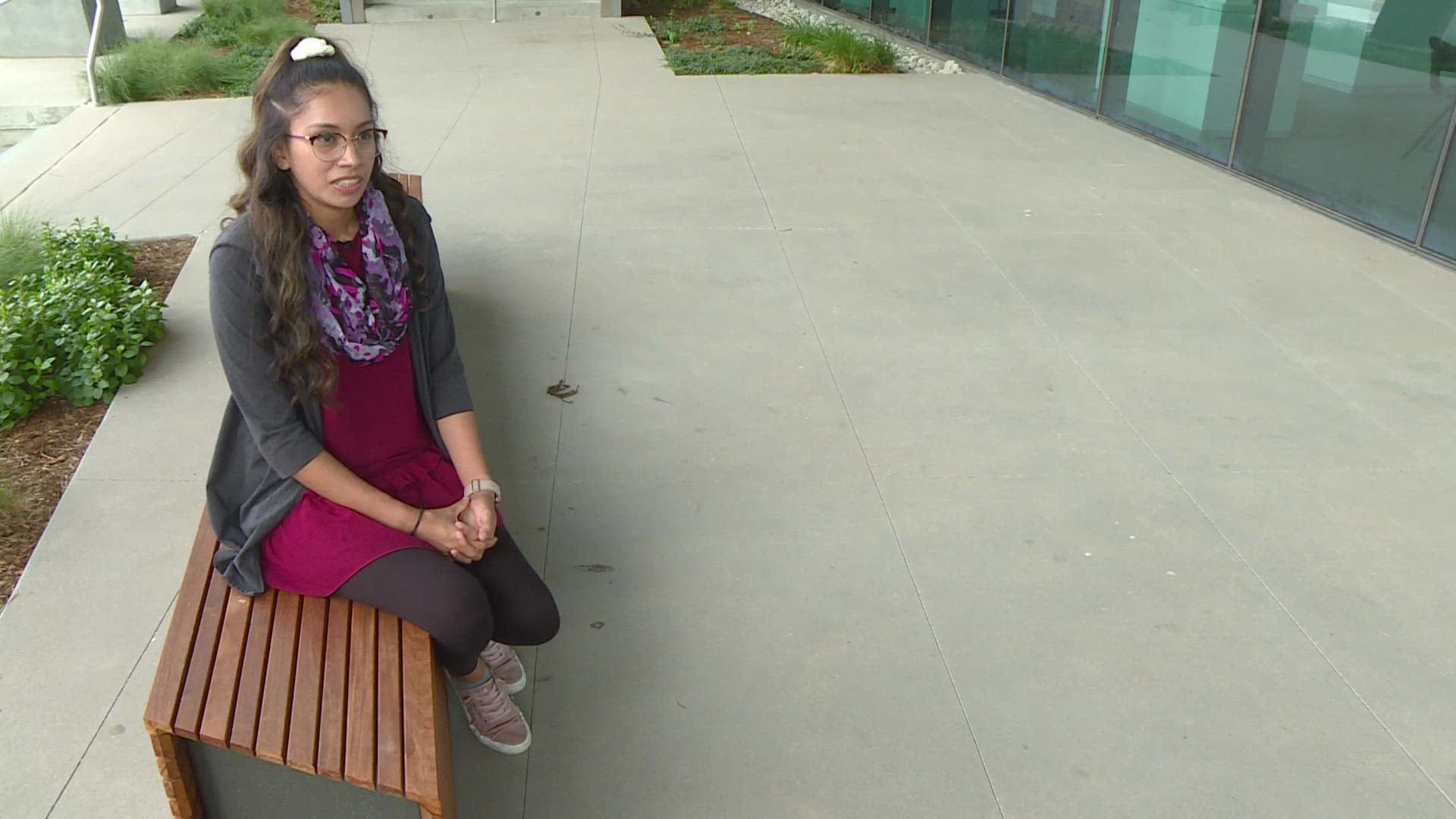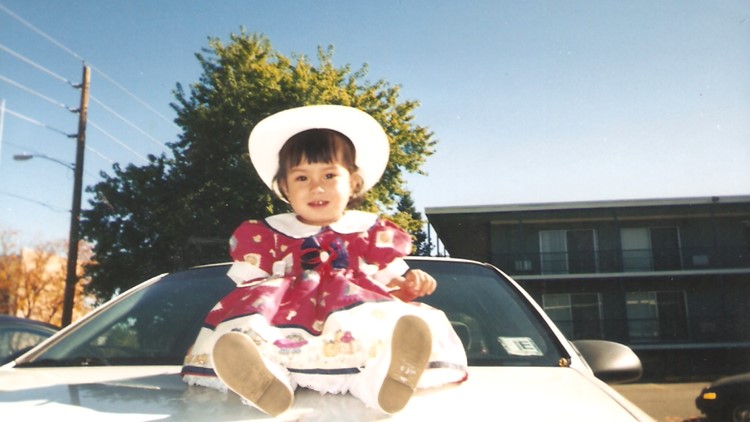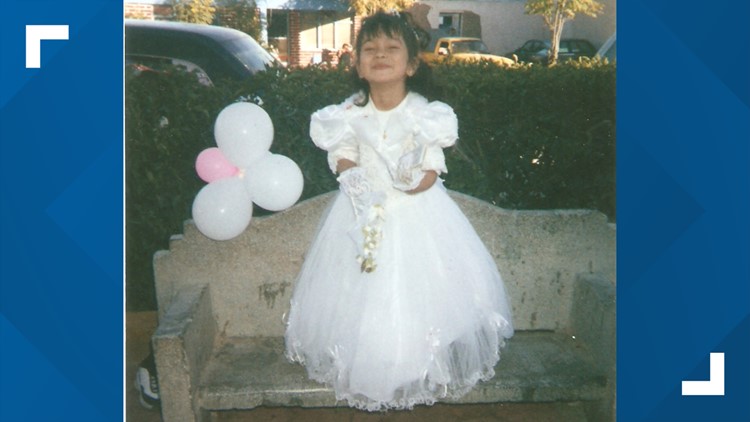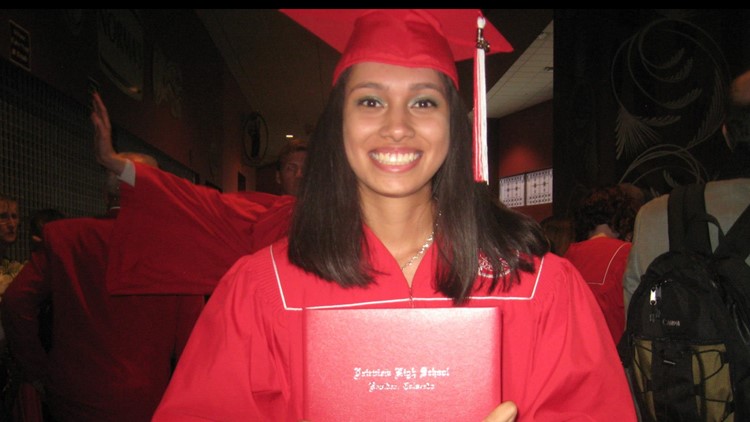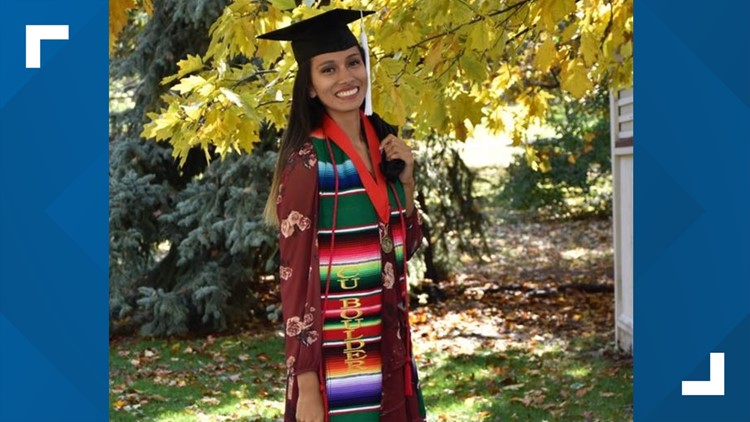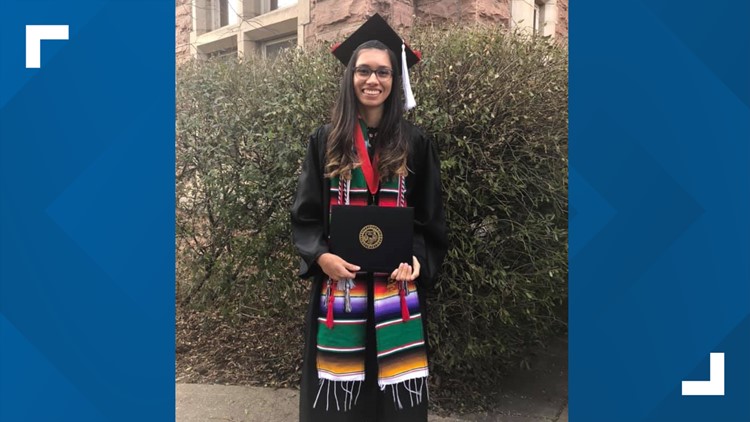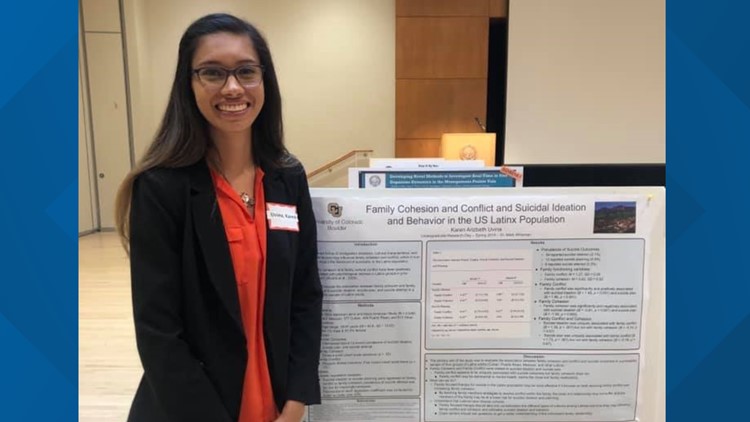DENVER — DACA and undocumented students still face additional barriers in their pursuit of advanced degrees such as master's, Ph.D. and other specialist programs.
Often referred to as DREAMers, students in the Deferred Action for Childhood Arrivals program are not eligible for certain forms of financial aid, such as federal aid or loans.
Options available include private scholarships, private loans and institutional aid.
At the graduate level, private scholarships are not as plentiful in comparison to undergraduate for all students, regardless of background. However, many of those private scholarships, funded through private donors, require U.S. citizenship. That means that DACA and undocumented students are ineligible to apply.
"It’s very discouraging. Going through scholarship searches like so many other students, that is the first thing I look for is citizen eligibility," said Karen Uviña, who attended CU Boulder for her undergraduate studies and is now pursuing a Master's in Public Health from CU Anschutz.
"We have to work harder than most students to be able to earn our degree, which means usually that we have to study more," Uviña said. "I wish there were more people like me who could have the opportunity to go to grad school. I’m sure there’s so many people like me who want to go to grad school but can’t."
As Uviña searches for scholarships to apply for, she estimates that about 80% require permanent citizenship. The process becomes disheartening as she has to pass up funding opportunities that she would otherwise be a good fit to apply for.
"It has been pretty hard. So the way I like to describe it is I have my linear path, and then I pick one path and there is a big boulder and I have to find a way to go through," Uviña said.
The issue is well-known with student advisors and others who are in advocacy roles that work hand-in-hand with students, including DACA recipients.
MSU Denver's Immigrant Services Program works to ensure students who want to explore opportunities for graduate-level degrees know their financial options.
"I can probably count on one hand the number of DACA and undocumented undergraduate students that have decided to continue their graduate studies here at MSU Denver, because they really don’t see a way to pay for it," said Director Gregor Mieder, who has been working with the program for seven years.
Mieder said it's important for him to reaffirm students that they are very much graduate school material, but there is also a point in the conversation where financial aid comes up.
"The conversation around financial aid becomes pretty brutal," Mieder said. "It’s difficult to think that this is something that you are going to be paying back for 10 or 20 years even with higher income."
The impacts of fewer DACA students going on to higher level education, Mieder said, are far-reaching.
"Individuals that are often first-generation college students, oftentimes low income college students, income really is the pathway out of generational poverty and to really pursue a career and a profession in which folks can grow. That becomes incredibly difficult when you don’t have the option of pursuing a master's," Mieder said.
The trickle effect is far less representation in the workforce and in roles that specifically require education beyond a bachelor's. As a result, the entire workforce suffers the impacts of less diversity.
"Diversity of opinion and input is incredibly important, but if you have a workforce that mostly looks across the board the same, you are probably not going to get perspectives and inputs and really different ways to approach problems," Mieder said.
DACA recipient's journey to graduate school
Uviña is proud to be the first in her family lineage to go on for a graduate-level degree.
"I am proud of -- to also be a representative of, to say that it doesn’t matter what your status is or where you came from, you can still achieve your educational dreams," Uviña said. "All I want to see is a bigger community of DACA individuals who can pursue a master's, Ph.D. or a medical degree or some other advanced degree. I think it will be a big testament of our community – this is who we are."
SUGGESTED VIDEOS: Education stories from 9NEWS

